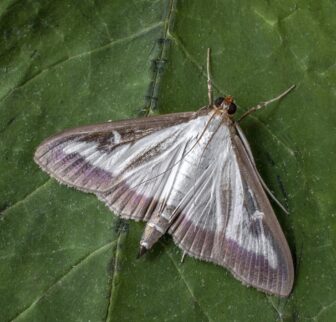By McKOY SCRIBNER
Capital News Service
LANSING — Michigan State University Extension is monitoring an invasive moth species that threatens a popular landscaping shrub.
The box tree moth was found in the United States this spring, including three areas in Michigan.
If established, the species, which is native to Asia, will destroy most boxwood shrubs in the country, experts say.
The U.S. Department of Agriculture’s Animal and Plant Health Inspection Service was able to remove the moths from the locations.
MSU Extension, the Department of Agriculture and Rural Development and the Animal and Plant Health Inspection Service are partnering to encourage the public to take action by enrolling in the early detection program.
Team member Jeremy Jubenville says it’s simple for homeowners to help.

Pixabay
Caterpillars of the invasive moth first consume the leaves and then the bark of the plant, killing the shrub.“We have pheromone traps they can hang in their yard, and these pheromones attract male moths,” said Jubenville, the horticulture and greenhouse Extension educator for Southwest Michigan. “These are synthesized chemicals that are emitted from the female moths to attract male moths. And if there are any box tree moths in the vicinity, they will be attracted to this trap.”
The attracted male moths won’t cause infestations because female moths need to be present to lay eggs.
The program is free, and participants are asked to check their traps once every week.
Jubenville says because invasive species are sneaky, he wants to make sure there are no others detected.
“We do not think the box tree moth has established in Michigan. We think we have eradicated it. But it never hurts to be a little precautious when it comes to invasive species,” he said.
People who bought boxwood plants in 2020 or 2021 are urged to check them for signs of infestation or damage.
The program continues into October.
Those interested in participating and hanging up a trap can fill out an online survey. For more information about the box tree moth and other invasive species, visit MSU Extension’s Invasive Species Website.